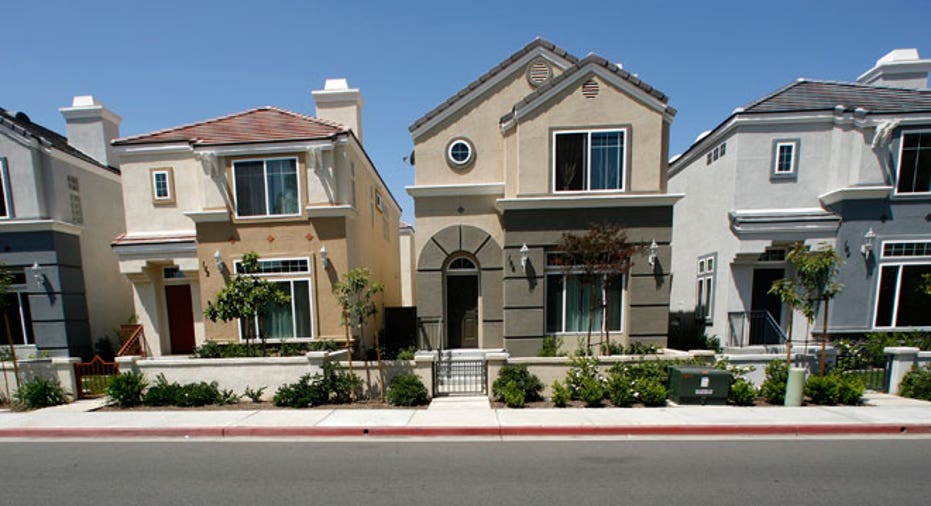How to Know if You Need More Home Insurance

Most homeowners keep track of changes in the estimated value of their homes. If the estimate increases, does it mean you should increase the limits of your home insurance coverage to accommodate the hike? The quick answer — maybe, maybe not. Why the hedge? It depends on why the value of your home has increased.
The good news? If what increased is the possible sale value, you’re likely in good shape, insurance-wise. The amount of home insurance coverage you need doesn’t change based on real estate prices.
How Real Estate Prices Work
Real estate prices focus on demand. The more demand there is for a house, the more a seller can ask to be paid. Demand depends on a number of factors and can change over time.
An example: Location is one of the most important factors in real estate. If a home is in a trendy neighborhood, a great school district or near desirable shopping or entertainment venues, its market value could be greater than that of a house in another location. On the other hand, neighborhoods can fall off “popular” lists, school districts can be redrawn, and stores and theaters can close. That same house likely wouldn’t sell for nearly as much.
Most recently,home values have increased in many parts of the country as the real estate market heated back up after the recession. As more buyers enter the market, sellers can demand higher prices.
How Home Insurance Prices Work
When you buy home insurance, you don’t base your coverage limits on what you paid for the house. Instead, you buy enough dwelling coverage so that you can rebuild what’s likely your largest investment in case it is destroyed by a covered event such as fire or wind.
Factors taken into account in arriving at this amount — also called the replacement value of your house — include the size of the house and local construction costs.
Insurance providers then consider the amount of risk presented by a particular home and policyholder. Again, location is important: It determines the types of threats a home can face. For example, it costs much more to insure a home in Tornado Alley than it would for a similar house in a region with less-volatile weather.
One thing that’s not a consideration is the land that comes with the house. In most cases, events that could destroy a house leave the property under it relatively unscathed. You still own it.
So Do I Need More Insurance Coverage?
It depends on which value of your home increased. If just the market value increased — because more people are buying houses in your neighborhood, new amenities are built there or for some other reason — then you don’t need to boost your coverage.
However, there are two ways the replacement value of your home could change:
- Local construction costs increase. If there’s a construction boom in your city, it’s possible that the increased demand could send prices soaring. That’s why it’s a good idea to occasionally run the numbers on a coverage calculator.
- You renovate or add to your house. Remodeling the kitchen, for example, can add $13,000 to $37,000 to your home’s replacement cost.
Under either of these scenarios, you should increase your home insurance coverage limits to match the new replacement cost.
Does this mean you’ll pay substantially more for your policy? Not necessarily. Shop your coverage with a number of providers; each uses different factors to determine quotes. Ask about discounts. Many companies offer substantial price breaks for buying home and auto coverage or even for things as simple as deadbolt locks. Finally, consider raising the deductible, as this can help cut premiums.
It’s a smart idea to keep an eye on the value of your home. Don’t jump to conclusions if that number increases. Instead, investigate the reason for the increase and evaluate whether you need to take action.
Read More from Zillow:
5 Reasons to Divorce Your Home Insurance Provider
12 Dog Breeds Insurers Dislike
Pools and Other Features That Can Spike Insurance Costs
Arthur Murray writes for HomeInsurance.com, an online insurance resource for homeowners and drivers across the country. Offering comparative homeowners and automobile insurance rates, consumers rely on HomeInsurance.com for the most competitive rates from the top-rated insurance carriers in the country. The HomeInsurance.com blog provides fresh tips and advice on a range of financial topics to help homeowners and homebuyers make educated decisions about their insurance purchases.
Note: The views and opinions expressed in this article are those of the author and do not necessarily reflect the opinion or position of Zillow.



















